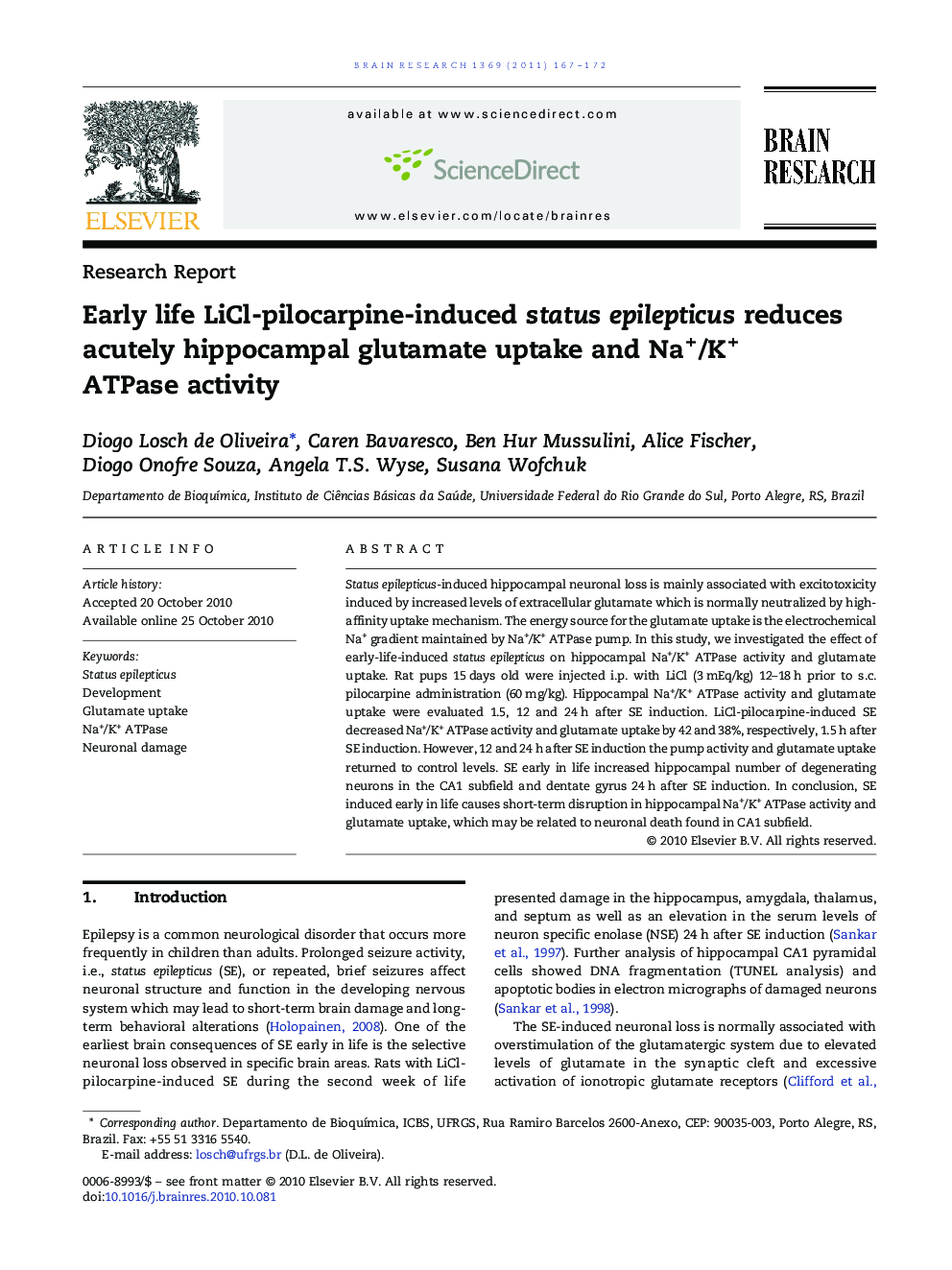| Article ID | Journal | Published Year | Pages | File Type |
|---|---|---|---|---|
| 6265389 | Brain Research | 2011 | 6 Pages |
Status epilepticus-induced hippocampal neuronal loss is mainly associated with excitotoxicity induced by increased levels of extracellular glutamate which is normally neutralized by high-affinity uptake mechanism. The energy source for the glutamate uptake is the electrochemical Na+ gradient maintained by Na+/K+ ATPase pump. In this study, we investigated the effect of early-life-induced status epilepticus on hippocampal Na+/K+ ATPase activity and glutamate uptake. Rat pups 15Â days old were injected i.p. with LiCl (3Â mEq/kg) 12-18Â h prior to s.c. pilocarpine administration (60Â mg/kg). Hippocampal Na+/K+ ATPase activity and glutamate uptake were evaluated 1.5, 12 and 24Â h after SE induction. LiCl-pilocarpine-induced SE decreased Na+/K+ ATPase activity and glutamate uptake by 42 and 38%, respectively, 1.5Â h after SE induction. However, 12 and 24Â h after SE induction the pump activity and glutamate uptake returned to control levels. SE early in life increased hippocampal number of degenerating neurons in the CA1 subfield and dentate gyrus 24Â h after SE induction. In conclusion, SE induced early in life causes short-term disruption in hippocampal Na+/K+ ATPase activity and glutamate uptake, which may be related to neuronal death found in CA1 subfield.
Research Highlights⺠Glutamatergic excitotoxicity contributes to status epilepticus-induced neuronal loss. ⺠An acutely reduction of Na+/K+ ATPase pump activity was observed after SE onset. ⺠Reduced pump activity was followed by a disruption in Na+-dependent glutamate uptake. ⺠This acutely neurochemical changes may be related to neuronal death induced by SE.
